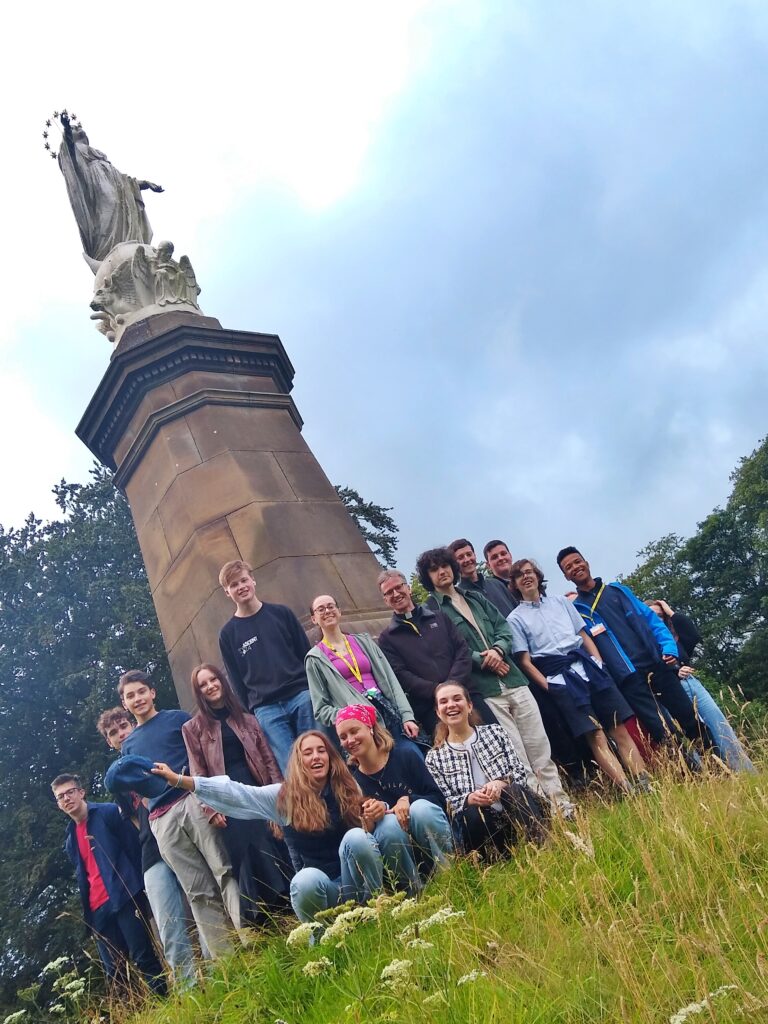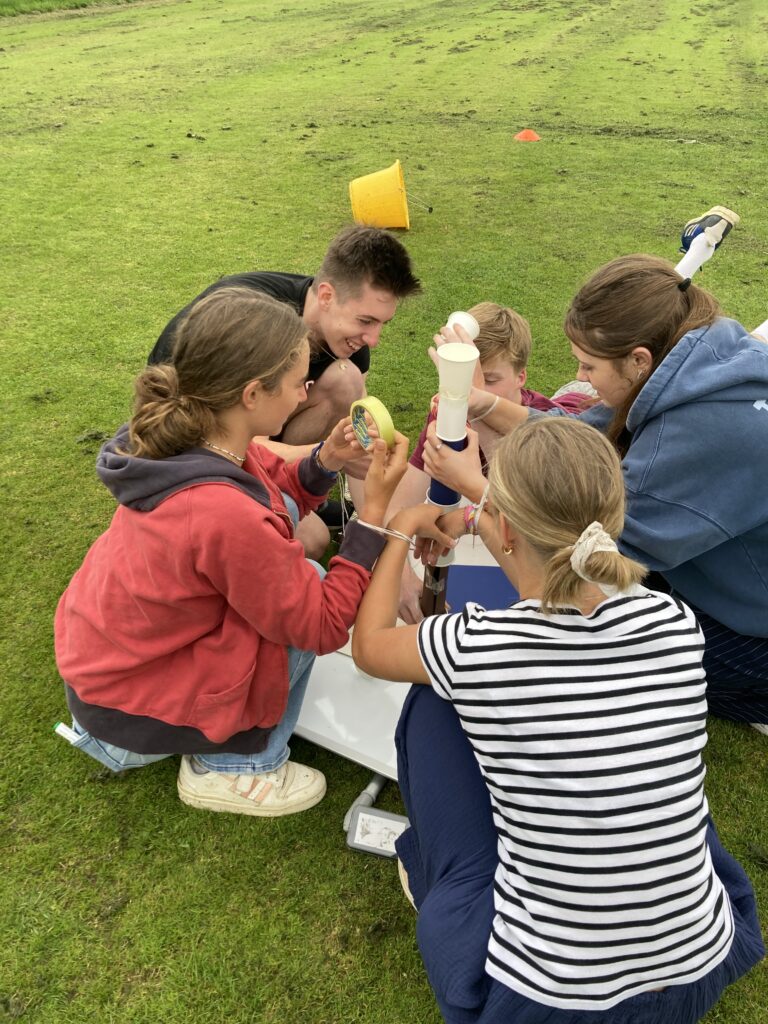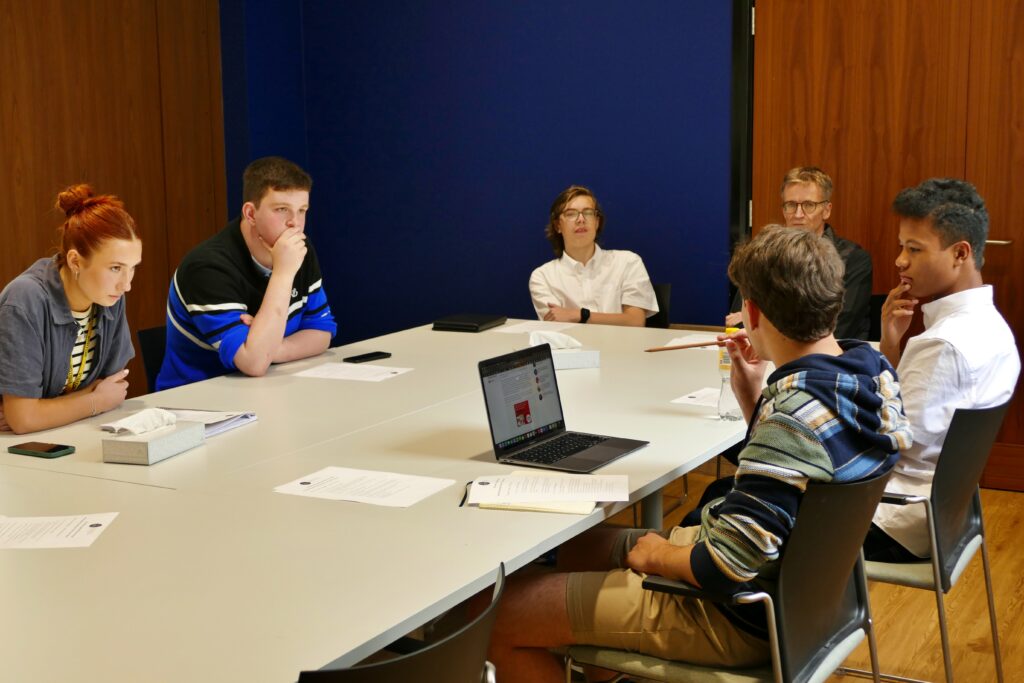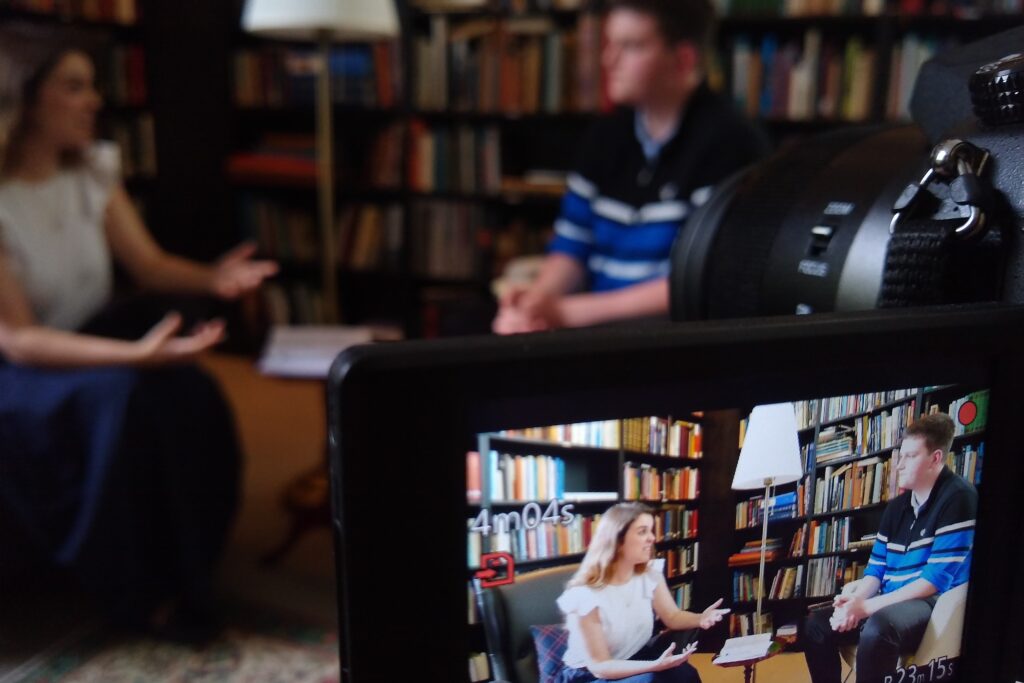Sunday 22nd September 2024
CLF: a week of prayer, study and friendship for teens
Stefan Kaminski
It was with both excitement and a dash of trepidation that I awaited the arrival of our second cohort of students, counting off yet again a mental list of to-dos and anxiously searching for some overlooked item of potentially life-threatening bureaucracy. At the back of my mind was the temptation to compare the incoming assembly of teenage faces to the first and original cohort, who inevitably have thus far held a special place in my memory as the personification of our Christian Leadership Formation programme.
The memories of the first group appeared to take on an even rosier tinge as I anxiously scanned the awkward interactions during the first ice-breaker. Small groups had coalesced, and appeared to be politely resisting my gentle suggestions that any one person’s correct partner (as determined by the random stickers on their forehead denoting one of a pairing of foodstuffs) was yet to be discovered elsewhere. Furthermore, beyond the natural diversity to be found amongst a random sampling of Catholic, sixth-form students from around England, additional variety was provided by having opened up this year’s programme to year 13 students too, and by the admission of two young ladies hailing from France, bringing a dash of je ne sais quoi to the mix.
A need for peer support
A reassuring sense of the consistency of both Western society and human nature rapidly returned, however, when we asked the assembled students about their expectations for the course. Southerners and northerners, Englishmen and Frenchwomen alike, all had similar preoccupations: they wanted to meet like-minded, Catholic young people, and they wanted to understand more concretely how their faith was applicable to the secular world of work that they were preparing to enter.
Whilst neither of these should have come as a great surprise, I nonetheless found it striking to hear the students admitting to their relative loneliness as practicing Catholics, given that they were all coming from Catholic educational settings. The positive surprise, in this respect, is that the students were actively conscious of the lack of peer-support in their faith and had a yearning for it.
The importance of this ‘community’ dimension for faith formation is perhaps hard to overestimate. It takes great courage and conviction to swim against the tide, and even the most resilient and intellectually-grounded of young people will feel the pressure of mass religious incredulity. Providing something of an antidote to this – an actively faith-filled and intelligent environment for the students to immerse themselves in (or, “a properly ‘Catholic’ environment”, as one student put it) – was precisely part of the vision for our Christian Leadership Formation programme.
“I feel much more secure in my faith now, even if only from knowing that there are other young people like me in the world”
Thus, and despite my initial apprehensions, it was deeply gratifying to see the initial barriers break down and a real cohesion built on mutual respect and friendship develop over the days that followed. And the feedback the students provided bore ample testimony to this. One young lady noted how she felt “much more secure in my faith now, even if only from knowing that there are other young people like me in the world.” Boniface, a year 12 student, praised “the experience of living, praying and studying as a community”, seeing as one of its fruits the fact that “everybody… started the week as total strangers and ended as friends”.
Community builds culture
This community dimension – the integration of prayer, of study and of recreation with wholesome, interpersonal relationships – is essential to any formative experience, whether the family home, the school community, a seminary or religious community, or a short programme like ours. And it is intrinsically related to the second concern the students brought with them: that of understanding the practical relevance of our Catholic faith in today’s world.
We have arguably reached a point where Christianity is now totally absent as the principal point of reference for our society’s collective imaginative vision. The intellectual framework of the modern mind is completely decoupled from its Christian foundations: from the conception of the very basic act of knowledge, through to that of the universal reality, both material and spiritual (assuming that one admits of the latter in the first place). It is thus difficult, if not impossible, for many young people (and indeed adults) to see a practical interaction between their ‘private’ faith and public life, as the two are constituted by imaginative paradigms that have very different points of reference.
The challenge for any formation project, then, is to create an environment that actively ‘speaks’ of the Christian vision and imaginative process in all its fullness. Such an environment should be able to promote a holistic engagement of heart and mind with the Catholic faith. An email from Rafael, one of this year’s cohort, straight after the first module, seemed to confirm that we had achieved something along precisely these lines: “I have relished the opportunity to consider big and challenging questions, and have done a lot of soul searching. But now, as the week ends, I find myself with greater clarity and stronger convictions.”
Rediscovering the intelligence of Christianity
Thus, the intention behind the academic content of the week’s course – led by the hugely experienced lecturer and highly-regarded philosopher, Dr Andrew Beards – was to offer the students a thorough and coherent, philosophical and theological grounding for those concepts that underpin our understanding of the common good; concepts that were fully refined in the light of Christian revelation and thought, but have since become meaningless in a de-Christianised (and dare I say de-rationalised) world. “Exploring topics like dignity, law, and human rights in a Christian light and comparing them to inconclusive secular views helped shed light on the logic of Christian thought”, said 18-year-old Maia.
At the heart of this exploration is the recognition that all people “have an innate desire to ‘seek the truth and act accordingly,’” as Qiyi, a year 12 student, put it. It is the rationality afforded by our spiritual nature, which leads us to search for knowledge and understanding, that is at the heart of what it means to be human, and is essential ground for the dignity that we claim for our species.
Recognising this primary truth, and the objectivity that is inherent to this claim, is that which provides a foundation for building up a society where “true justice is rooted in love, truth and the common good”, in the words of another year 12 student, Santiago.
The theme of justice was central to the week, as the students explored its practical application in a number of scenarios, whether preparing for a student union debate on the abortion of unborn children with Down’s Syndrome or analysing a legal case relating to a terminally-ill patient. What the students readily saw from these exercises was that for justice to truly flourish, our understanding of human life and of that which is proper to its flourishing requires solid ground. Rafael summed this up as follows: “Human Rights are principles agreed upon by a body of people representing society, they can be said to be in the service of preserving human dignity, but this can only be guaranteed if they are rooted in Natural Law”.
Engaging with others and engaging with Christ
The heavy lifting of the week’s academic content was given welcome relief by a generously-spaced timetable, which allowed not only for the students’ own recreation, but also some organised fun in the shape of various, and slightly zany, team-building activities. Communication and the harnessing of collective skills were the general objectives, but plenty of hilarity ensued as teams competed for points over the course of the week. The timetable was rounded out by the sparkling input of Georgia Clarke, who delivered a thoroughly-engaging series workshops in media and public speaking, which culminated in a mock interview at the week’s end.
Evenings were also an opportunity for relaxation and socials, with a dinner at one of our characterful local pubs a part of the schedule, alongside a pizza and film night. The discussion that followed the screening of “Eye in the Sky” took on an unexpected quality as the previous, U.S. Army career of the CHC’s second member of staff, Dr Joey Belleza, was revealed, and the group benefitted from some rather fascinating insights into the military realities portrayed in the film!
We were privileged to have one of the last evenings in the company of Lord Alton, who came to speak to the students, and engage with them over a dinner and discussion. His keynote speech providentially drew together many of the strands of the preceding days’ discussions as he showed the students how his Catholic faith had served as a lodestar throughout his political career and how the concepts that they were studying were so critical in enabling a truly flourishing society. For many of the students, this was a powerful, first testimony to the positive role that our faith has to play even in today’s society.
I have perhaps deliberately left till last what is the most important element of the programme, that which gives meaning to and draws all the above together into a cohesive whole: the life of prayer. Although the practical focus of the programme often, inevitably, ends up on the academic content – advertising the topics, flagging the academic benefits, noting the societal import of such weighty matters – I am always most struck by the lesser-seen impact of the liturgical rhythm of the course. This only really reveals itself after the event, once the students have sent in their written evaluations at a week or two’s distance. The experience of daily Mass, Liturgy of the Hours, and regular opportunities for Eucharistic Adoration and meditation, is one that is generally new to most students. The impact that this has, however, is clearly marked. From bringing them “a sense of order and discipline… [and] closer to God”, to seeing “productivity, enjoyment and work output improved”, the practically- and spiritually-essential nature of prayer and of the Church’s sacramental rites hit home in tangible ways, and sent the students away with a renewed sense of commitment to coming to know and love their saviour, Jesus Christ. If this was the only outcome of the programme, I would say it was all worthwhile!




